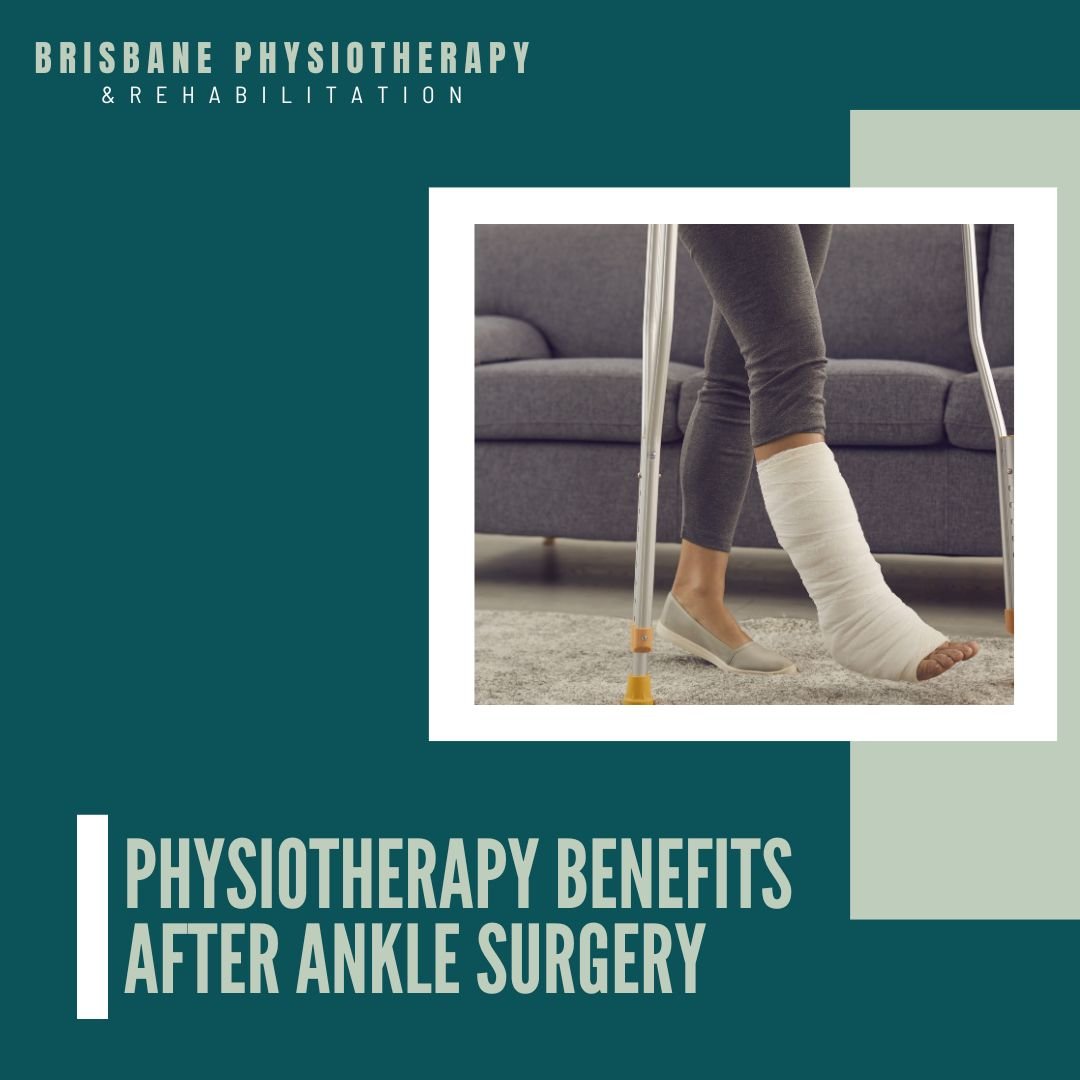Why is seeing a Physiotherapist crucial after Ankle Surgery?
Physiotherapy plays a crucial role in the recovery process following ankle surgery. Here are some key reasons why physiotherapy is important after ankle surgery:
Restoring Range of Motion: Ankle surgery often requires immobilization or limited movement of the ankle joint, which can result in stiffness and reduced range of motion. Physiotherapy helps to restore flexibility and improve the range of motion in the ankle joint through specific exercises and manual therapy techniques.
Strengthening: Surgery and subsequent immobilization can lead to muscle weakness in the ankle and the surrounding areas. Physiotherapy includes exercises targeting the muscles around the ankle, such as the calf and peroneal muscles. Strengthening these muscles is vital for regaining stability, balance, function and proper gait mechanics.
Pain Management: Post-surgical pain and discomfort is common. Physiotherapy can utilize various pain management techniques, such as electrical modalities, manual therapy, and therapeutic exercises, to help reduce ankle pain and inflammation.
Preventing Complications: After ankle surgery, complications like blood clots, joint stiffness, and muscle atrophy may occur. Physiotherapy interventions, including early mobilization, specific exercises, and circulation-enhancing techniques, can help prevent these complications and promote a faster and smoother recovery.
Restoring Function: The ultimate goal of physiotherapy after ankle surgery is to restore optimal function. Our physiotherapists work closely with patients to improve balance, coordination, and proprioception (awareness of joint position). We design customized treatment plans to enable individuals to regain the ability to walk, climb stairs, and engage in activities of daily living and sports without pain or limitations.
Education and Guidance: Our physiotherapists provide valuable education and guidance to patients regarding proper techniques for walking, using mobility aids and progressing through exercises and activities. We also offer advice on pain management strategies, self-care techniques, and the gradual return to sports or physical activities.
It's important to note that the specific physiotherapy interventions and timeline of rehabilitation will depend on the type of ankle surgery performed, individual patient factors, and the surgeon's recommendations. Therefore, it is always recommended to consult with a physiotherapist who can assess your specific condition and provide appropriate guidance throughout your recovery journey.
